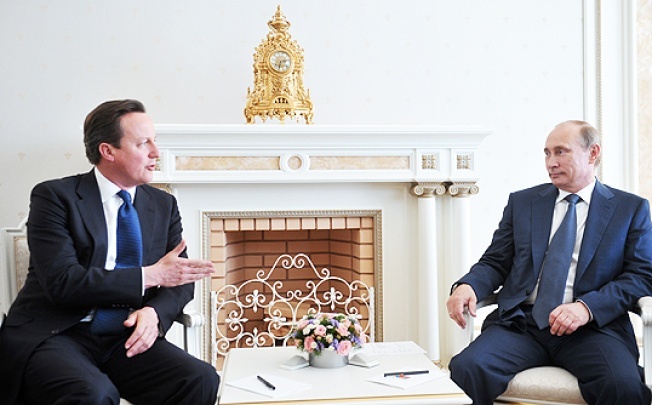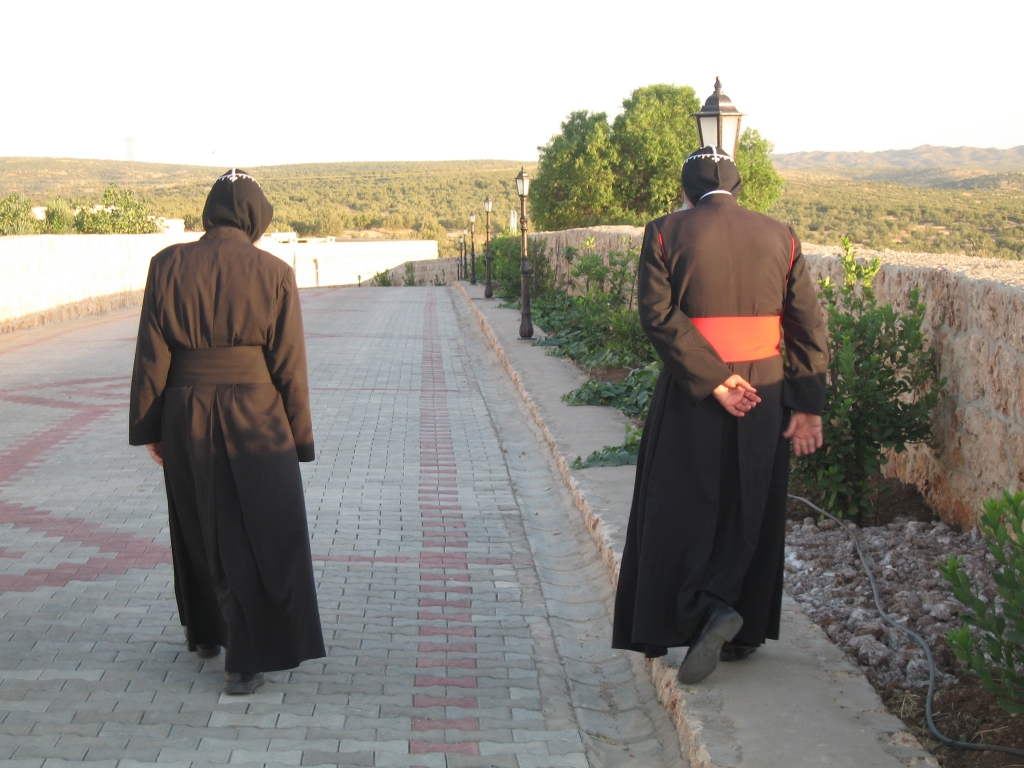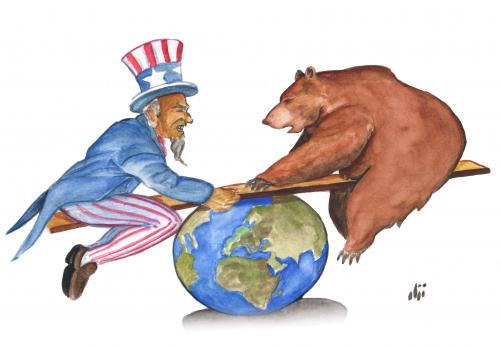On Saturday June 1, 2013, the Russian delegation to the UN Security Council vetoed a UN “declaration of alarm” that condemned the ongoing siege in the Syrian town of Al-Qusair.
The vetoed UNSC statement, put forth by Great Britain, expressed “grave concern about the situation in al-Qusair, Syria, and in particular, the impact on civilians of the ongoing fighting.” In response to Great Britain’s proposal, the Russian delegation said it was “not advisable to speak out, as the UN Security Council did not [speak out] when Qusair was taken by the opposition.”
[captionpix align=”left” theme=”elegant” width=”300″ imgsrc=”http://syrianfreepress.files.wordpress.com/2012/12/vitaly-churkin-20121212.jpg?w=529″ captiontext=”Russian representative Vitaly Churkin vetoed great Britain’s drafted UN statement.”]
UNSC resolutions require unanimity to be adopted. As in October 2011, February 2012 and July 2012, the Russian delegation has frustrated international efforts to intervene in this rapidly escalating conflict. As exasperation mounts, so too does the ease with which commentaries slip into comfortable typecasts. The notion of an “Evil Empire” returns to Western minds.
Russian support of Bashar al-Assad’s crumbling regime has been carefully calculated and highly strategic. As Washington and Moscow scramble to assemble a peace conference later this summer, it is imperative to understand why Russia has supported a regime that seems so clearly on the wrong side of history. Of course, by way of direct interests, Russia’s motivations in support of Syria are clear. Russia boasts USD$19.4 billion dollars worth of investments in Syrian infrastructure, energy, and tourism today. In addition, a Moscow-based defense think tank reported last year that Russia sent Syria nearly USD$1billion in 2011, and held some USD$4billion in outstanding contracts. Finally, Russia is undoubtedly motivated by the presence of its Mediterranean fleet at Tartus, a Syrian port city. The importance of Tartus is also accorded undue credit in Russian calculations. Indeed, until recently, Tartus served primarily as a supply and repair center. While each of these factors should not go unacknowledged, it is equally important to keep them in perspective. For example, with respect to arms shipments, Syria is Russia’s seventh-largest customer, trailing far behind such countries as China, India, Algeria and Vietnam.
[captionpix align=”left” theme=”elegant” width=”300″ imgsrc=”http://www.scmp.com/sites/default/files/styles/980w/public/2013/05/10/russia_britain_syria.jpg?itok=s4FNDUiW ” captiontext=”British Prime Minister David Cameron spoke with Russian President Vladimir Putin in Moscow in May 2013.”]
Ultimately, there are two greater factors at play that motivate the Kremlin – factors that all countries ought to bear in mind. First, much of Russian stubbornness in the UNSC is motivated by events in Libya two years ago. In March 2011, Russia abstained from – and thus allowed for – the passing of UNSC Resolution 1973, which invoked the international community’s responsibility to protect Libyan civilians and allowed for the implementation of a no-fly zone over Libyan air space. Suffice it to say, the Alliance got carried away. Resolution 1973, informed by humanitarian motives, justified a NATO-led war and forced regime change in Libya. Where Russia gave an inch, Alliance members took a mile.Russia will not soon forget Unified Protector, nor forgive its exclusion from peace talks thereafter.
Any recognition of fault on behalf of Western leaders is unlikely to come. On the contrary, NATO’s intervention in Libya is praised as a powerful, successful case of the responsibility to protect in action. However, the cost of this intervention is now being paid in Syrian lives. Russia now insists on clear, measurable objectives for any UN intervention or peace plan in Syria. Alliance members would do well to follow suit. Another Middle Eastern front should not be opened casually. While the West stands indignant in face of al-Assad’s ongoing abuse of human rights, it is important to recognize that Western condemnation of select Arab dictators carries little weight so long as we support equally corrupt regimes. Indeed, our motives are quite as mixed as Russia’s.
[captionpix align=”left” theme=”elegant” width=”300″ imgsrc=”http://frommashriqmaghreb.files.wordpress.com/2012/10/pic.jpg?w=587 ” captiontext=”A member of the Free Syrian Army (FSA) in al-Qusair.”]
Russia is intent on curbing what it perceives as Western determination to unseat Middle Eastern leaders. Western intervention in Afghanistan, Iraq, and Libya, in addition to diplomatic pressure on Tunisia, Egypt, and Yemen, are viewed collectively by Moscow as undue Western influence in the region.
The second – and arguably, the most significant – point in explaining Russian strategy vis à vis Syria is the fundamental chasm between European and Russian perspectives on the Arab Spring. Where Western countries applaud the Arab Spring as an advance for human freedom, Russia anticipates – and fears – enhanced instability in the region. First, state collapse in Syria would further isolate another regional ally, Iran. Russia views Syria and Iran as essential counterweights to the strength of Saudi Arabia and other Sunni states in the Middle East. The collapse of the Syrian state would also open an unwelcome power vacuum in an already tumultuous region. Considering election results in Tunisia and Egypt, the Kremlin fears that Islamic parties within the Syrian opposition will profit most from state collapse.
In face of a long-running Islamist insurgency in the North Caucuses, Russian leaders are particularly sensitive to the rise of extremist groups as a consequence of the Arab Spring. At this point in time, the disparate groups of the Syrian opposition – made up of the National Coalition for Syrian Revolutionary and Opposition Forces, the Syrian National Council (SNC), and Free Syrian Army (FSA), among others – share an enmity for al-Assad, but little else. While the presence of extremists within the Syrian opposition is far from substantial, their presence is nonetheless cause for Russian concern. So long as the threat of radicalism remains on their doorstep, the Kremlin will be more sensitive to the consequences of intervention.
[captionpix align=”left” theme=”elegant” width=”300″ imgsrc=”http://i.alalam.ir/news/Image/original/2013/05/21/alalam_635047705001917392_25f_4x3.jpg” captiontext=”Syrian troops celebrate after capturing the village of Haydariyah (just outside of al-Qusair).”]
According to the Brooking Institution’s Fiona Hill, “[Putin] is going to continue to block anything until he gets ironclad guarantees, which will, of course, be extremely difficult to put together, about what will happen next in Syria, who is going to take charge and what it’s going to look like.” Russia is preaching a lesson that we all must heed: be careful who you arm. While the Alliance condemns al-Assad’s possession and alleged employment of chemical weapons, it should be just as concerning whose hands they fall into if the Syrian opposition – still fragmented – prevails. History has shown us that helping rebels come to power does not mean they will thank their benefactors. Recognizing the validity of Russian claims is not only in our own interests, but is essential to building a stronger peace. Those who seek moral high ground and condemn Russian motives will find it rather lonely at the top.



